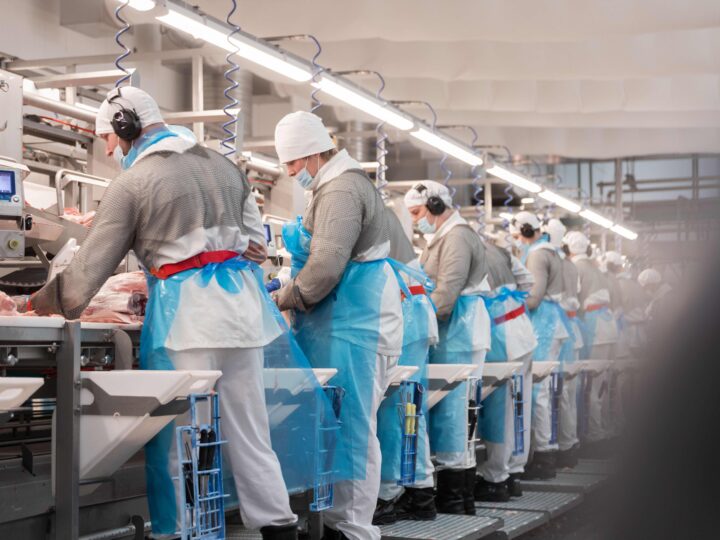How AI is truly taking place in the food chain – insights from Almedalen 2025
4 minutes reading
During Almedalen Week 2025, we gathered four voices from different parts of the food chain to discuss a topic many talk about – but few actually implement: how AI and data can create real value from farm to store shelf. Here are our key insights from the panel discussion.

The technology exists – but it's people who make the difference
- We are in the midst of a shift where data is no longer something static – it is a force changing how we produce, distribute, and consume food. Said Agnes Lindell, Business Owner, Elvenite.
AI is no longer something we are waiting for, it is already here. But despite that, 93% of AI projects stall in the strategy phase. Why? The panel agreed: the problem is not the technology. It is us humans. Too much planning, too little testing. Too much abstract strategy, too little business benefit.
- Access to knowledge is no longer the problem. The challenge is knowing what to do with it. Said Mathias Dyberg, CEO, Elvenite.
Start small and start where it matters
Coop's CEO Meta Persdotter talked about how they have concretised AI by improving product flows and using smart automation in recruitment:
- We have started with what we know is business-critical: the right product must be in the right place at the right time. It provides immediate benefits – for both employees and customers.
Lars-Gunnar Edh from Lantmännen emphasised the importance of not getting stuck in large, abstract AI strategies:
- Create small wins that can be connected. Then the benefits are built step by step – and become real.
It is more about leadership than algorithms
The panel repeatedly returned to the organisational perspective: AI only becomes useful if the culture allows it.
- We need to create security to dare to try new things. It starts with good leadership and clear direction," said Meta Persdotter.
And to really succeed, more collaboration is required – not less. There was broad agreement that the most sustainable innovations occur in collaborations that go beyond company boundaries.
Real AI solutions are already in use
The discussion also showed that there are already a number of value-creating AI solutions in use:
- AI-assisted inventory flow optimization in stores
- Automated candidate screening in recruitment
- Decision support in industrial control rooms
- Biobased circular production where by-products are returned to agriculture
- It is not about replacing people - but about giving them better tools to make the right decisions, said Lars-Gunnar Edh.
The future requires collaboration, not silos
Jonas Engström Jadvi from RISE highlighted an important aspect: AI has the potential to level the playing field in the food chain, but also to reinforce divisions if we don't think correctly:
- We have 50,000 small farming businesses in Sweden. For them to be part of the development, we need to design solutions that suit the entire chain, not just the large players.
At the same time, a common direction is needed. For when everyone has access to powerful technology, it is those who can collaborate – and adapt – who will win.
The panel's responses to the five big questions
-
Why do AI initiatives get stuck in the strategy phase?
Too much planning, too little action. The technology exists – it's the courage and direction that's lacking.
-
How can you start small – but still achieve impact?
Start where the need is concrete. Work closely with the business. Test and evaluate quickly.
-
What is needed organizationally to succeed?
Value-driven leadership, trust, data sharing, and a culture that allows for mistakes.
-
Are there solutions available today that create value?
Yes. But they must be implemented where they belong – in reality, not in theory.
-
What does the future look like for AI in our industry?
AI will be crucial – but only for those who act consciously, collaboratively, and with customer value in focus.
Ready for the next step towards becoming a more data-driven organization?
Related news

Data strategy: what it is, why it’s important and how to get started

Swedish Match Industries takes the next digital step with Elvenite and Infor CloudSuite
